Eric's Insight: Why high-profile scientist forum settles in Yunnan

Venue of the 2023 Tengchong Scientists Forum
The 2023 Tengchong Scientists Forum (TCSF) was held in southwest Yunnan’s Tenchong city from December 1 to 3. With the high-profile single award of 10 million yuan granted to two scientists from China and the U.S. and an array of some 2,000 global scientists participating into thoughts-provoking discussions, the forum has become a phenomenon event in the international arena of science and technology, and it will give immense impetus to talents cultivation and open development in Yunnan province and beyond.
Scientific technology is the paramount productive force that drives economic development and social progress, and the key to technological advancement lies in talents. As a relatively under-developed province in southwest China, Yunnan is in urgent need of technological talents, and the TCSF can play a decisive role in cultivating international talents for Yunnan’s open development. So why does such a high-profile scientist forum settle in the province? The answer lies in Yunnan’s excellent scientific traditions and the multifaceted benefits for scientists.
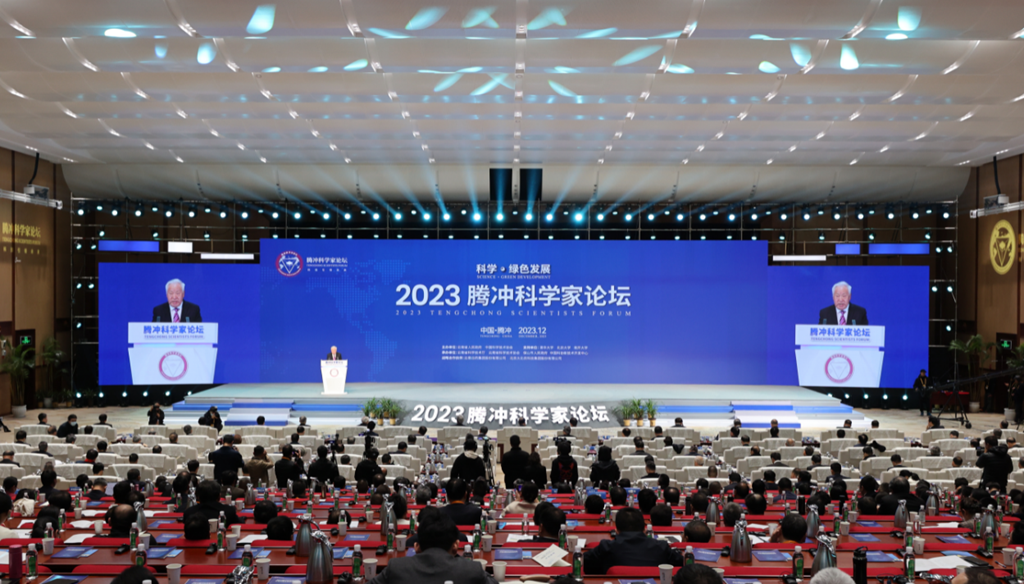
Opening of the 2023 Tengchong Scientists Forum
Yunnan’s fine scientific traditions
Yunnan province has been a utopia for scientists since ancient times. More than 380 years ago, Xu Xiake, a famed Chinese geographer in the Ming Dynasty (1368-1644), embarked on his Yunnan odyssey in a pair of plain shoes. Xu traveled in Yunnan for more than 630 days, studying in detail some 50 counties or county-level cities in the province. His travel notes concerning Yunnan added up to 250,000 Chinese characters, accounting for 40 percent of Xu Xiake's Travel Notes.
This book of masterpiece offers detailed descriptions of Yunnan’s geography, hydrology, geology, plants and other phenomena. By rendering the provincial hills, rivers, lakes, flowers, birds and animals into travel notes, Xu served not only as a pioneer in studying Yunnan's geography, but also a trace-blazer in the exploration of natural beauty of the province.
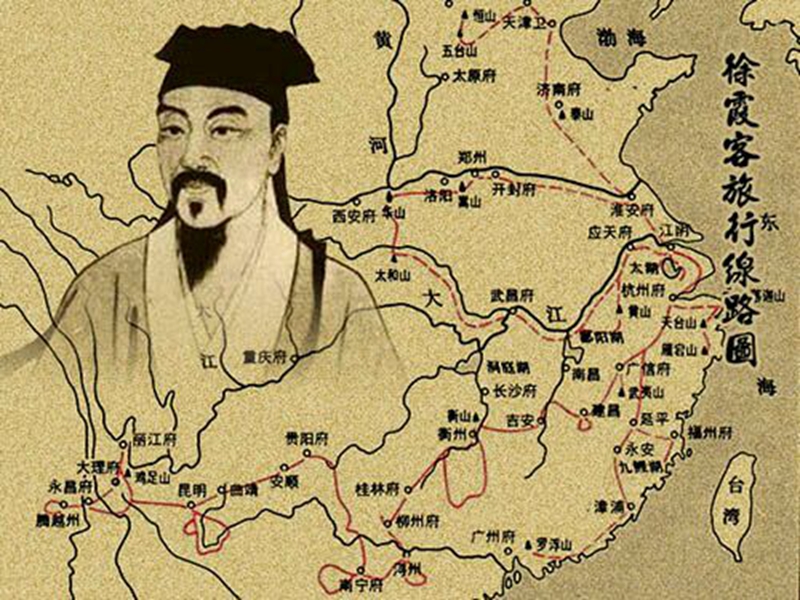
A portrait of Xu Xiake and the route for his studying tour (Online photo subject to deletion in case of rights dispute)
Among the Yunnan cities and towns, Xu Xiake studied Tengchong the most, to which he devoted around 30,000 Chinese characters in his travel notes. Xu Xiake depicted Tengchong as the “first city on the extreme edge of China”. Indeed, Tengchong has been a key stop on the ancient Southern Silk Road that linked up southwest China and south-southeast Asia, and it lies only some 100 kilometers away from Myitkyina, an important town in northern Myanmar.
From a broader regional perspective, Tengchong used to be a busy conduit between the Chengdu and Kunming cities in southwest China and their peer cities in Myanmar, India and other south-southeast Asian countries, giving rise to frequent cultural exchanges and mutual learning of civilizations in the regions. Indian curry and Myanmar gems identified their Chinese lovers, while Chinese tea and silk also found their ways to south-southeast Asia.
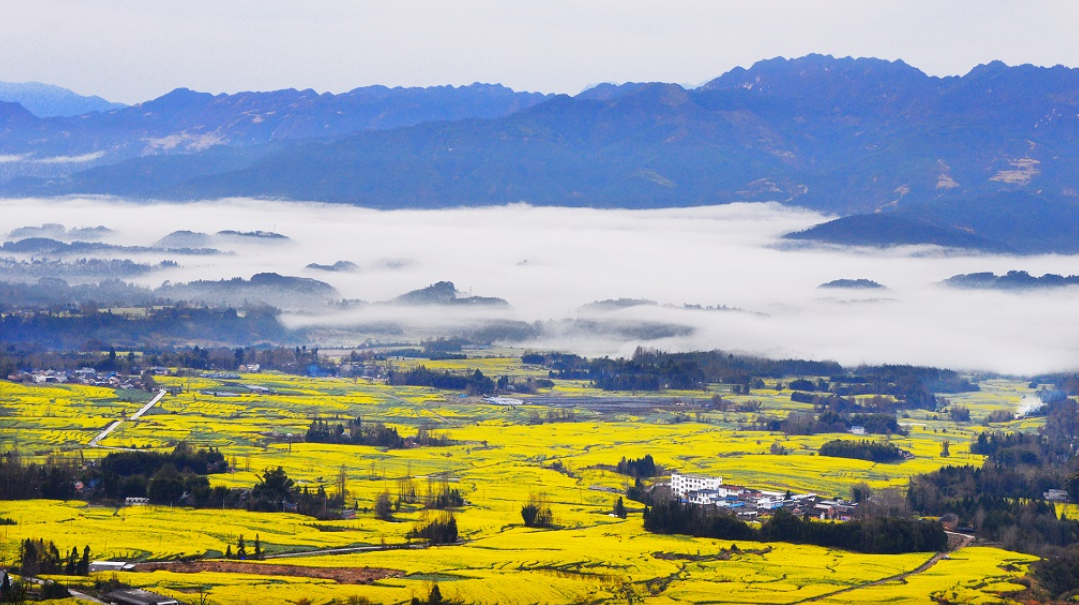
A view of Tengchong
In modern times, Yunnan once stood out as a Chinese pioneer for science, education and the spreading of democratic ideas. Amid the warring 1930s and 1940s, Peking University, Tsinghua University and Nankai University moved to Yunnan to avoid Japanese occupation and stayed in the province for over eight years, founding the National Southwest Associated University (Lianda) and creating an educational miracle in China.
In less than one decade, the Yunnan-based university produced two Nobel Prize winners, four winners of China’s top science and technology award, and eight winners of "Two Bombs and One Star Medal for Meritorious Service", as well as 171 academicians at Chinese Academy of Sciences and Chinese Academy of Engineering.
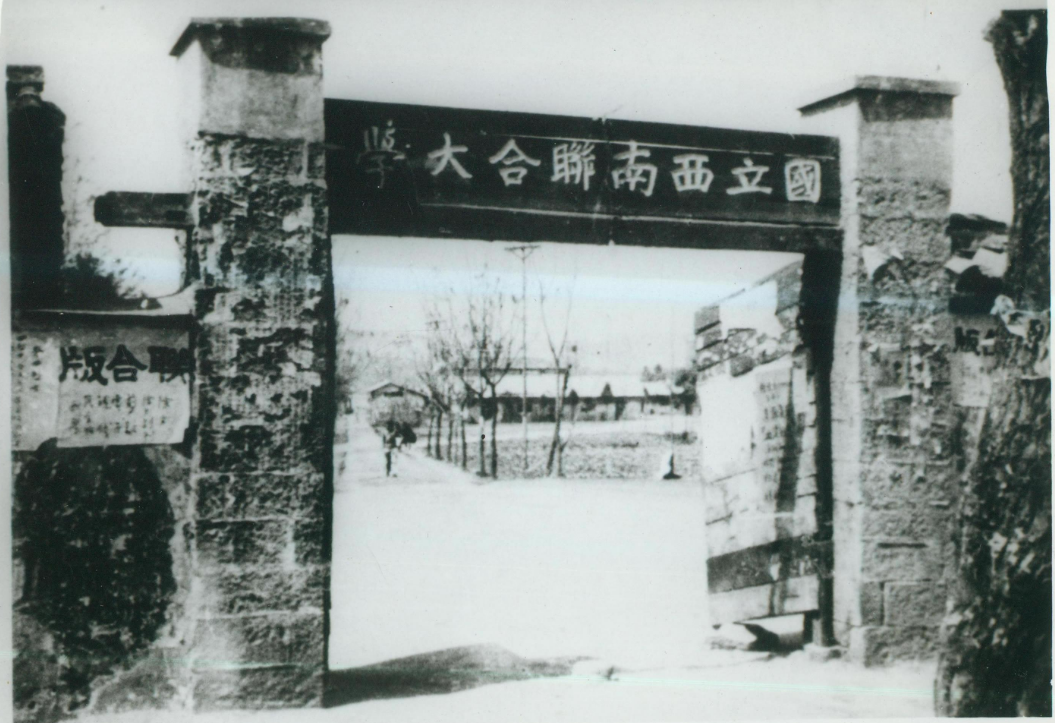
An old photo of the National Southwest Associated University (Lianda)
Almost in the same decades, a number of intellectual figures emerged in Yunnan’s Tengchong, including Li Genyuan, a founding father of the Republic of China, Ai Siqi, a Marxist philosopher, and Cun Shusheng, an educator of fame. In 1924, the returned overseas Chinese of Tengchong raised funds in building up the Heshun Library, and it is still the largest rural library in China.
It was under such a backdrop that Gu Binglin, Xu Zhihong and Rao Zihe, former presidents of Peking University, Tsinghua University and Nankai University, put forward the idea of a scientists forum during their investigative tour to Tengchong in December 2020, when the renowned educators were impressed by local mild climate, favorable environment, cultural tradition, biodiversity and others.
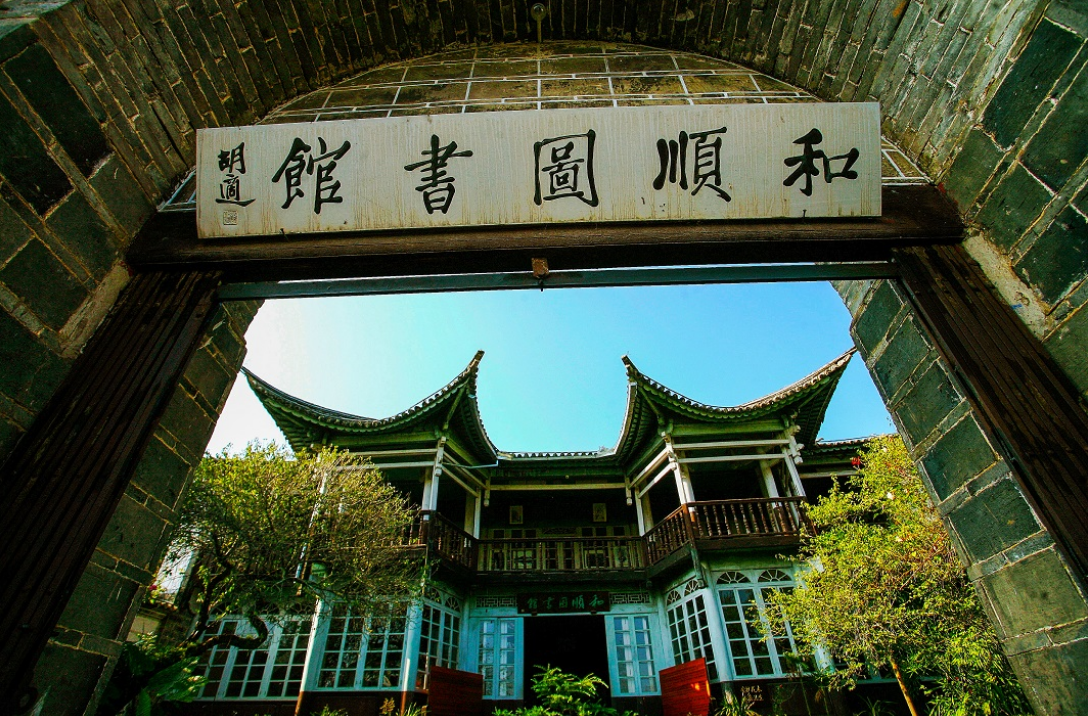
The Heshun Library
What’s more, Tengchong reminded them of the Davos town in east Switzerland. They agreed that Tengchong is a perfect place for scientists to stay away from urban hustle and bustle, to observe stars in the sky, and to seek truth via thorough thinking. And inspired by the World Economic Forum in Davos, as well as the operating mode behind the Davos forum, they began to prepare for the Tengchong Scientists Forum.
“In following the excellent tradition of Lianda and fulfilling our commitment to the idea of a ‘scientific Davos’, we will establish special institutions, build a permanent meeting venue, set up a foundation for forum development, highlight diversity of the TCSF’s sub-forums and carefully select winners of the Tengchong Science Award, all for a world-class scientist forum with the Chinese and Yunnan features,” Yunnan Party secretary Wang Ning noted at the 2023 Tengchong Scientists Forum.

A performance is staged to carry forward the Lianda tradition.
Multiple benefits for scientists
Besides the long-lasting scientific traditions, Yunnan also has a pleasant living environment, abundant resources for scientific pursuit, and sufficient policy supports for scientists. First, sound ecology. Scientists are after all human beings, and they are also in need of living a life of health, happiness and contentment before they can do a good job in their scientific pursuit. For this, Yunnan offers them blue sky, fresh air, lucid waters and lush hills, allowing scientists to free their minds or get inspired when dead-locked in tricky experiments.
Second, abundant resources for scientific pursuit. Yunnan is dubbed as the kingdom of wildlife and nonferrous metals, and many of them belong to the rare ones across the globe, providing scientists with invaluable assets for project design. Yunnan's animal and plant resources account for more than 60% of the China’s total. In the 1950s, the Chinese Academy of Sciences established the institutes of botany and zoology in Yunnan.
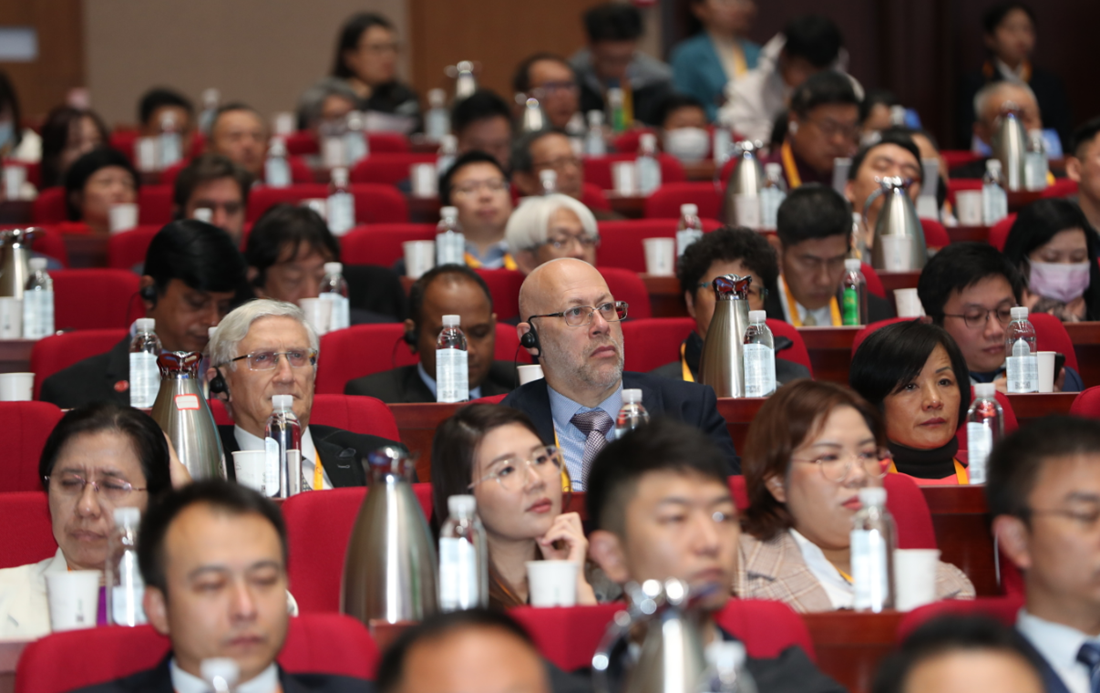
Participants of the 2023 Tengchong Scientists Forum
Artemisinin, an antimalarial medicine related to the Nobel Prize winner Tu Youyou, was first extracted in bulk in Yunnan from the Artemisia annua, a plant unique to the province. Yunnan also produces the most tea, flowers, walnuts and coffee among Chinese provinces, and these economical plants provide infinite possibilities for scientists to combine their projects with agricultural and industrial development, as is done by Yuan Longping or Zhu Youyong.
Scientists should make cutting-edge scientific projects more popular, said Xu Zhihong, academician at Chinese Academy of Sciences and former president of Peking University, at the 2023 TCSF. “In Yunnan’s Gaoligong mountainous areas where coffee grows well, for example, we hope to produce the best coffee drinks with optimized coffee seeds and high-caliber coffee processing technologies.”
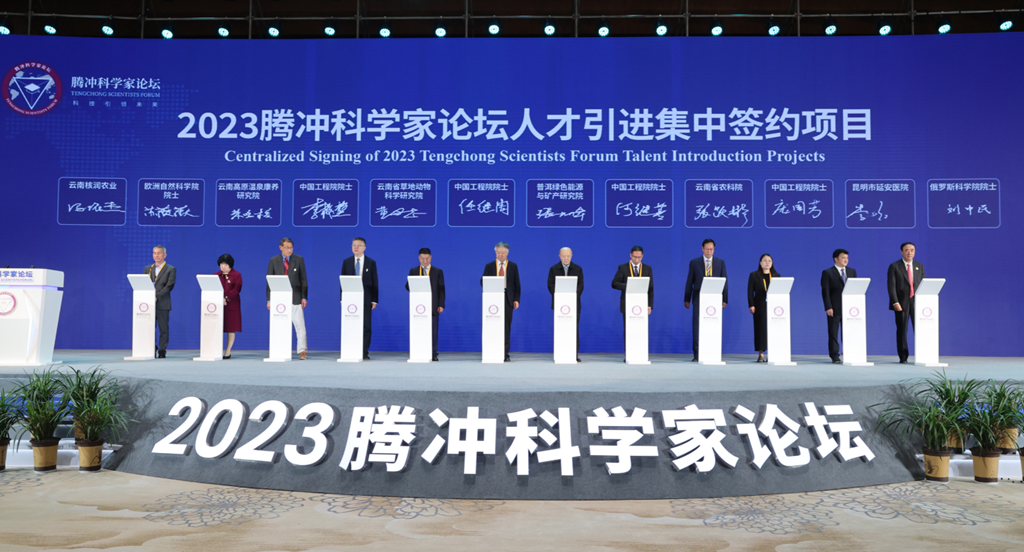
Projects for talents introduction are signed at the 2023 Tengchong Scientists Forum.
The Yunnan reserves of 25 rare metals stand out in China, with lithium reserve ranking first in Chinese provinces. Across the world, the province also produces the most rare and precious metals among the suppliers. These nonferrous metals have significant scientific values, with their advanced mining at the beginning stage, so it is urgent to bring science and technology into full play for more effective utilization.
As for Tengchong, it abounds in volcanos and hot springs. The volcanic emissions allow geologists to peep into the earth, while hot springs-based rehabilitation centers are good for their exhausted minds and bodies. What’s more, the south section of the Gaoligong Mountain in Tengchong owns a high degree of biodiversity. With 2,100 higher-plant species and some 1,300 animal species thriving there, the mountain section makes a "natural museum" for botanists and zoologists.

A volcanic landscape in Tengchong
Third, preferential policy supports for scientists. To make international talents feel at home, Yunnan is implementing a talents-aiding program, where the province devotes at least 4 billion yuan annually to scientific projects, with a maximum of 30 million yuan to a single project. More than 20 special policies in schooling, travel and health care have been formulated for the Yunnan-based scientists and their children.
Each academician workstation in Yunnan enjoys an annual fund of 1.8 million yuan, while each specialist workstation has an annual fund of 900,000 yuan. So far, Yunnan has signed some 90 talent introduction projects and 100 investment projects via the TCSF. With a total investment of over 62 billion yuan, these projects cover digital economy, biomedicine, advanced equipment, modern logistics, food processing and consumer goods making, all crucial for the socioeconomic development in Yunnan and the neighboring south-southeast Asian countries.
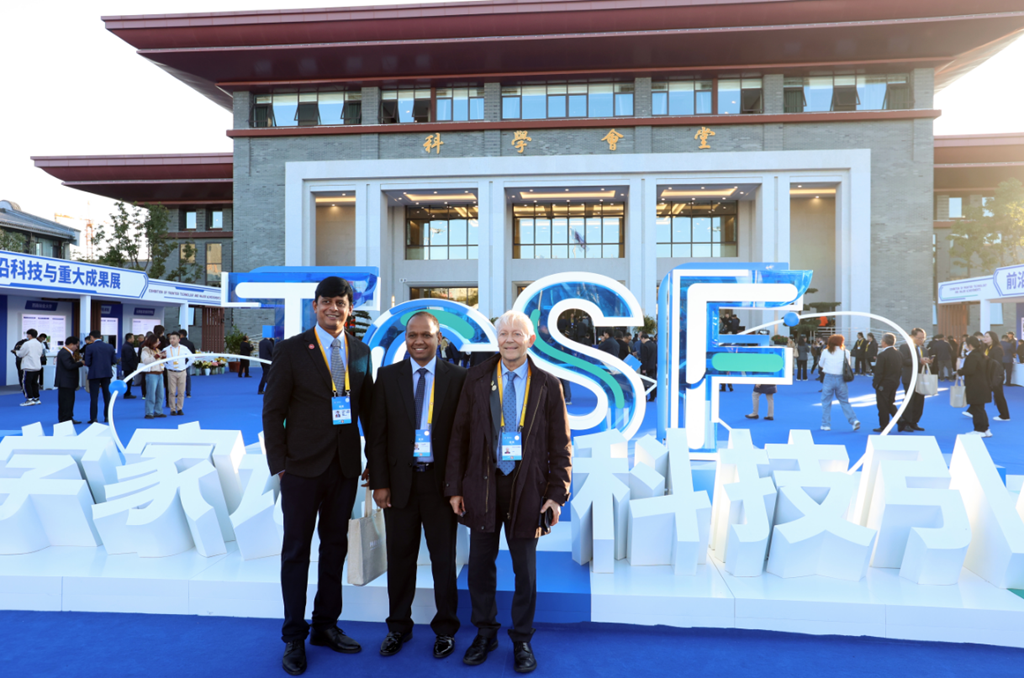
Tengchong Science Auditorium
To make the TCSF a ‘scientific Davos’, Yunnan has established Tengchong Science Award and the permanent meeting venue – Tengchong Science Auditorium. As the first Chinese social award for scientists, the Tengchong Science Award is established with a single prize of 10 million yuan, and it is initiated purely in Chinese mainland and selected among international scientists. It is also the first science award directly named after a border city in China.
The award is mostly granted to scientists or research teams who have made major break throughs in biomedicine, modern agriculture, new materials, green energy and other fields. The award-winners must have solved major problems and challenges faced by mankind through technological innovation, with their research projects resulting in significant economic or social benefits. This year, the honor went to Lu Yuming, academician at Chinese Academy of Sciences and Zhang Feng, Chinese-American scientist and professor at MIT.
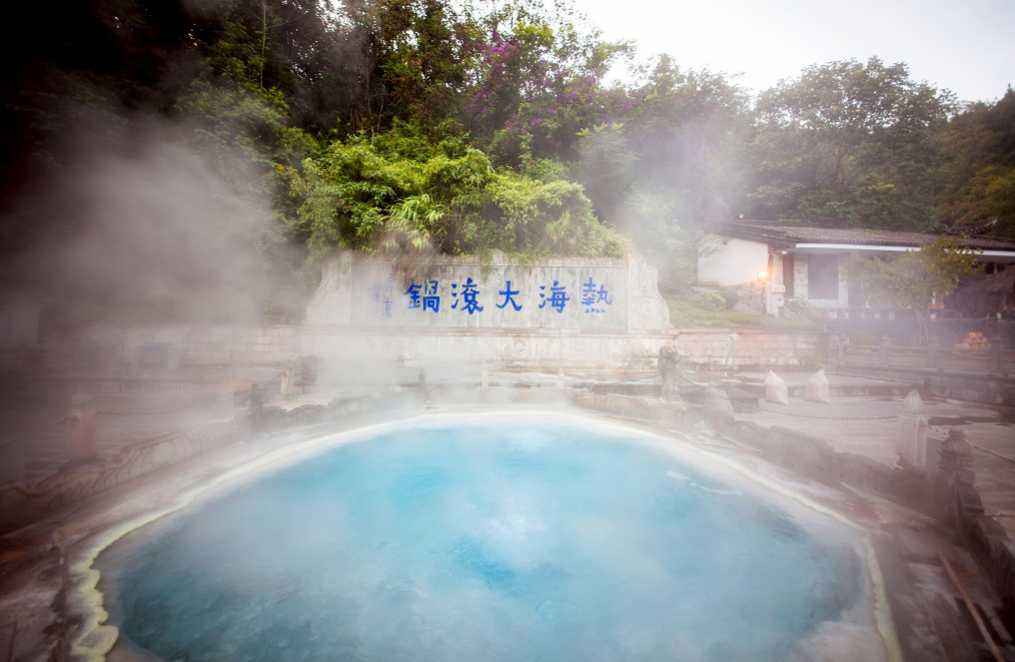
A hot spring in Tengchong
“The Tengchong Scientists Forum has been held for two consecutive years and it’s emerging as another brand-new platform for international scientific exchanges. As a major conduit between southwest China and countries involved in the Belt and Road cooperation, Yunnan is willing to increase international technological cooperation and make due contributions to national and even global scientific progress,” said Wang Ning at the 2023 TCSF.
Writing by Wang Shixue; Proofreading by Zu Hongbing and Wang Huan; Photos by Yunnan Daily